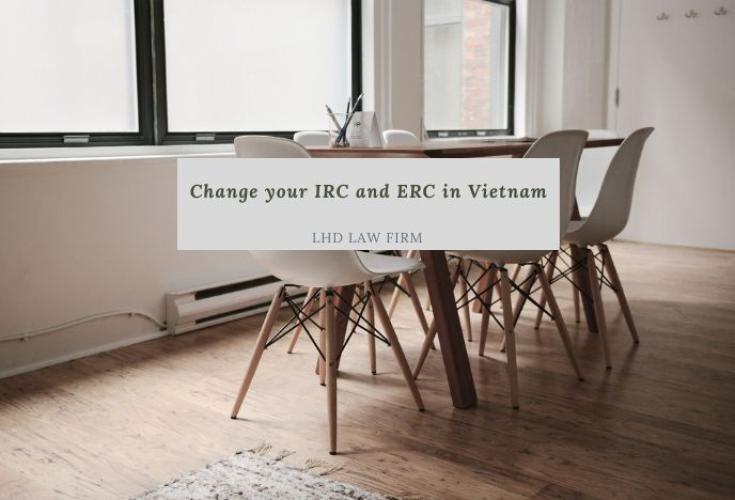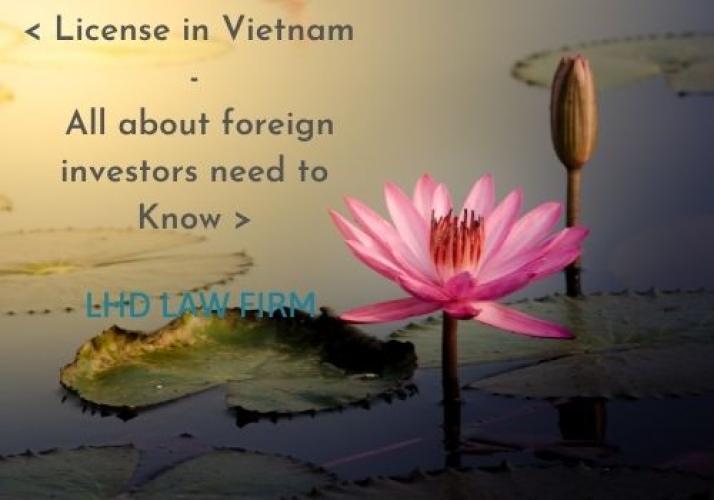How To Do Business In Vietnam - Everything You Need
- 23/01/2024

 CONTENT
CONTENT
 CONTENT
CONTENT
How to do business in Vietnam - Doing business in Vietnam
If you're looking to take your business global, Vietnam could be the perfect destination for expansion. With a booming economy and lasting political reforms on the horizon, this Southeast Asian nation offers unique opportunities for entrepreneurs seeking to build something special.
The country’s infrastructure is second to none, boasting one of the fastest Internet connections throughout Asia while providing access points in most major cities or even down at street level.
Business-friendly regulations allow foreign ownership and seamless trade across borders without too much extra paperwork – now add in cheap labor costs with highly proficient English proficiency levels (especially among younger generations) – it's little wonder why so many businessmen are drawn here every year!
In this blog post, we'll discuss everything you need to know about doing business in Vietnam - from the pros and cons to the business customs within this bustling marketplace.
Overview of Vietnam Business Environment
Vietnam ranks the country at 73rd out of 190 countries, one of the highest rankings amongst ASEAN nations. This is largely due to the country’s strong commitment to reforms, which have seen a reduction in bureaucratic procedures and the overall cost of doing business.
Doing business in Vietnam is relatively straightforward, with most paperwork being completed online or through a single portal.
Is Vietnam a Good Country to Do Business in?
The ease of doing business in Vietnam has made it an attractive destination for entrepreneurs. Doing business in Vietnam is relatively straightforward as many of the regulations and procedures necessary to start a company have been simplified.
The government also offers incentives to foreign investors, such as tax exemptions, startup capital, and subsidized labor costs. Additionally, Vietnam’s strategic location makes it an ideal hub for many different types of business operations.
Pros and Cons of Doing Business in Vietnam
11 Benefits of Doing Business in Vietnam
Low Operating Costs:
Doing business in Vietnam is relatively inexpensive, with businesses able to benefit from lower labor and overhead costs compared to other countries in the region.
For example, the cost of living in Vietnam is much lower than in other countries. Doing business in Vietnam also offers businesses the opportunity to take advantage of a large and relatively inexpensive workforce.
Strong Economic Growth:
Doing business in Vietnam offers businesses the opportunity to benefit from an economy that is growing at a rapid pace. Doing business in Vietnam offers businesses a lucrative opportunity to capitalize on the country’s strong economic growth.
For example, Vietnam has one of the highest GDP growth rates in Asia and is expected to sustain its strong economic performance in the years ahead. Doing business in Vietnam can enable businesses to benefit from strong economic growth and tap into new markets.
Vietnam’s Free Trade Agreements (FTAs)
Doing business in Vietnam provides companies with access to a wide range of free trade agreements. Doing business in Vietnam offers businesses the opportunity to benefit from preferential trade terms with countries around the world, including the United States and members of the European Union. Doing business in Vietnam can enable companies to take advantage of reduced import tariffs, as well as more favorable customs and regulatory facilities.
Particularly, some of Vietnam’s trade pacts include:
-
Japan – Vietnam Economic Partnership Agreement (EPA) (2008)
-
Chile – Vietnam FTA (2011)
-
Eurasia – Vietnam Economic Union (2015)
-
South Korea – Vietnam (2015)
-
EFTA (European Free Trade Association) – Vietnam (ongoing negotiations)
-
Comprehensive and Progressive Agreement on Trans-Pacific Partnership (2018)
-
Vietnam – European Union FTA (2019)
-
Comprehensive and Progressive Agreement for Trans-Pacific Partnership
-
As an ASEAN member nation, Vietnam has signed a number of other FTAs with Japan, China, India, Australia, New Zealand, South Korea, and Hong Kong.
Favorable Location:
Doing business in Vietnam offers companies the opportunity to take advantage of the country’s favorable location. Doing business in Vietnam allows companies to benefit from its strategic position between China and India, as well as its proximity to other countries in the region. Doing business in Vietnam also provides businesses access to a large and diverse consumer base, as well as access to a range of import and export opportunities.
Political Stability:
Doing business in Vietnam offers companies the opportunity to benefit from political stability. Doing business in Vietnam allows companies to take advantage of the country’s strong economy and relative stability compared to other countries in the region. Doing business in Vietnam also allows businesses to take advantage of the country’s strategic position in the region and access a large consumer base.
Government Support:
Doing business in Vietnam also offers businesses the opportunity to benefit from government support. Doing business in Vietnam allows companies to take advantage of various incentives and programs designed to promote growth and development. Doing business in Vietnam also provides businesses access to preferential trade agreements with other countries in the region.
Consumer Potential:
Doing business in Vietnam also offers businesses the opportunity to benefit from a large and growing consumer base. Doing business in Vietnam provides businesses access to a large and increasingly affluent consumer base, as well as access to a range of import and export opportunities. Doing business in Vietnam also allows businesses to take advantage of the country’s strategic location and tap into new markets.
Low Tax Rates:
Doing business in Vietnam is attractive due to its favorable tax system, with low corporate income tax rates, generous tax incentives, and exemptions from certain taxes. Doing business in Vietnam allows companies to take advantage of some of the lowest corporate tax rates in the region, as well as other incentives designed to promote business growth. Doing business in Vietnam also provides businesses access to preferential trade agreements with other countries in the region.
Modern Infrastructure:
Companies operating in Vietnam have the benefit of modern infrastructure, with access to advanced telecommunications and transportation networks. Furthermore, they can capitalize on valuable import/export opportunities while leveraging the country's advantageous location - which allows them to tap into an extensive consumer base.
Customer Base:
By launching operations in Vietnam, companies can leverage a vast customer base of both international and local customers.
Not only that, but businesses will gain access to several import/export opportunities as well as preferential trade agreements with other nations within the region. Doing business in Vietnam is an ideal way for any company to maximize its potential growth and revenue streams.
Competitive Labor Cost:
Doing business in Vietnam can also provide businesses with access to a competitive labor cost. Doing business in Vietnam provides companies with access to a large pool of skilled and experienced workers, as well as access to a range of labor laws designed to protect businesses. Doing business in Vietnam also provides businesses with access to corporate tax incentives and other incentives designed to promote business growth.
Some Risks of Doing Business in Vietnam
Complexed Business Setup Process:
Doing business in Vietnam can be challenging due to the complex business setup process. Doing business in Vietnam requires companies to follow a number of bureaucratic procedures and can be time-consuming. Doing business in Vietnam also requires companies to be mindful of the country’s corporate laws and regulations, as well as a range of other regulations.
Lack of Transparency:
Doing business in Vietnam necessitates an understanding of the country's intricate tax laws and regulations, as well as a heightened awareness of the inherent lack of transparency and visibility. Companies that operate in this environment must also be cognizant of the various risks associated with conducting operations here.
High Costs:
Conducting business in Vietnam can be expensive due to the myriad costs associated with this venture. Companies must pay high corporate taxes, labor fees, and other operational expenses to operate there successfully. However, these investments are often worth it; businesses that invest in doing business in Vietnam have found success – even if it requires a hefty upfront cost.
Cultural And Language Barriers:
Knowing the culture, language, laws, and regulations of Vietnam is crucial for any business that wants to succeed in this country.
Unfortunately, due to cultural and language barriers, entering the market can be difficult; however, with a thorough understanding of local norms and risks associated with doing business there – success is within reach.
Bureaucracy:
Doing business in Vietnam can be a tricky affair, given its complex bureaucratic system. Companies must have an understanding of the intricate regulations and procedures associated with conducting corporate activities in the country while being aware of the timelines for registering and obtaining licenses. Without this insight, companies may find it difficult to navigate through Vietnam's business environment efficiently.
Intellectual Property (IP):
Companies must be knowledgeable of the legal framework of IP matters and safeguards when conducting business in Vietnam, as inadequate protection for intellectual property rights is a significant challenge.
It is imperative to also be mindful that infringement risks exist and ensure every effort is made to protect patents, copyrights, trademarks, trade secrets, or any other forms of proprietary knowledge from theft.
Vietnam Business Culture
Importance of understanding business culture in Vietnam
When it comes to business, Vietnam has a very strong hierarchical culture. It is important to be aware of the importance of rank and power dynamics in this country.
Doing business in Vietnam requires a good understanding of the various customs and etiquette that surround meetings and formal events. Doing your research, including observing local behavior when you first arrive, will ensure that you stay on the right side of the cultural divide and make a good impression.
14 Common Business Customs in Vietnam
Greetings
Greetings in Vietnam are usually done with a handshake, but men can also give the traditional "Vietnamese bow," which is done by bowing from the waist and placing their hands together flat.
Doing business in Vietnam may require an understanding of some common cultural gestures. Always try to address people by their title, surname, or both, and remember that titles such as "Mr." or "Ms." are very important here.
Gift Giving
Giving and receiving gifts is also a common custom in Vietnam, but ensure that the gift is appropriate for the occasion and not too lavish.
Doing business in Vietnam may require knowledge of these customs to make a good impression on potential partners.
Seniority & Respects
In Vietnam, showing respect and deference to those in higher positions is expected. Doing business in Vietnam will require you to understand the importance of seniority and respect to ensure successful dealings with local clients.
Language Barriers
Vietnamese is the official language of Vietnam, though English is widely spoken in the business world. Doing business in Vietnam will require an understanding of both languages, though most Vietnamese businessmen today are fairly proficient in English.
Body Language
Body language is very important in Vietnam, and the traditional Vietnamese bow is a sign of respect. Doing business in Vietnam will require knowledge of proper body language in order to maintain respect and form good business relations.
Business Etiquette
Punctuality is essential when doing business in Vietnam, so always arrive on time for meetings and other events. Doing business in Vietnam will require knowledge of proper etiquettes, such as dressing appropriately, addressing people with respect, and avoiding controversial topics in conversation.
Eating and Drinking
Doing business in Vietnam will require knowledge of proper dining etiquette. Most dinners follow a certain protocol, such as serving the senior members first and refraining from drinking alcohol before the toast.
Doing business in Vietnam may also require an understanding of local customs regarding food, such as not leaving your chopsticks sticking up in your food or eating directly from a communal bowl.
“Keeping Face” Culture in Vietnam Business
Maintaining “face” is of the utmost importance in Vietnam, and it is essential to understand this concept when doing business in Vietnam.
Doing business in Vietnam will require an understanding of how to maintain respect and status in the eyes of local partners. It is important to show deference to those in higher positions and to avoid open disagreements, which can be seen as a sign of disrespect.
Business Cards
When doing business in Vietnam, it is important to remember that exchanging business cards is considered a formality. Doing business in Vietnam will require knowledge of proper card etiquette, such as presenting the card with two hands and taking care to examine the card of your counterpart before putting it away. Doing business in Vietnam may also require you to have business cards printed in both English and Vietnamese.
Hours of Business
Businesses in Vietnam generally operate between 8 am and 5 pm, Monday to Friday. Doing business in Vietnam may require knowledge of the local hours of operation in order to ensure that meetings and other events start on time.
Business Attire
When doing business in Vietnam, it is essential to dress appropriately. Doing business in Vietnam requires knowledge of the local customs when it comes to dressing for business meetings and other events.
Doing business in Vietnam will require you to dress more formally than you would for a casual dinner, such as wearing a suit and tie for men and a conservative dress or business suit for women.
Relationships and Networking
Relationships are essential in Vietnam, and doing business in Vietnam requires knowledge of how to build relationships and networks. Doing business in Vietnam may require you to attend social events, such as dinners or networking events, in order to build the necessary connections.
Doing business in Vietnam will also require you to take the time to get to know your local partners and build trust. Doing business in Vietnam may require you to be patient and take the time to form lasting relationships.
Flexibility
Doing business in Vietnam will require you to be flexible and adaptable. Doing business in Vietnam may require you to be patient as well since decisions are often made slowly. Doing business in Vietnam may require you to adjust your expectations and be prepared for unexpected changes or delays.
Doing business in Vietnam requires an understanding that rules and regulations are subject to change without warning. Doing business in Vietnam will require an ability to remain calm and adapt to the ever-changing environment.
Referrals and Recommendations
Doing business in Vietnam requires knowledge of the importance of referrals and recommendations. Doing business in Vietnam will require you to build relationships with local partners who can provide referrals and recommendations.
Doing business in Vietnam may require you to obtain letters of recommendation or endorsements from local contacts as evidence of trustworthiness. Doing business in Vietnam may also require you to use connections when seeking out potential customers and partners.
Doing business in Vietnam will require an understanding of the importance of referrals and recommendations as well as an ability to build relationships with local contacts.
Company Introduction
Doing business in Vietnam will require you to introduce your company and its products or services. Doing business in Vietnam may require you to provide a clear and concise overview of the company and its history.
Doing business in Vietnam will require you to provide evidence of the quality of your products or services as well as any awards or recognition they have earned.
Doing business in Vietnam may require you to send promotional materials, such as brochures or company literature, in order to provide further information on the company. Doing business in Vietnam also requires an understanding of how to effectively market your products and services in order to maximize success.
What to Prepare Before Doing Business in Vietnam?
Businesses that are looking to do business in Vietnam should ensure they have a strong understanding of the country's corporate laws, regulations, and other administrative requirements. Doing business in Vietnam requires having a deep insight into the cultural norms and local customs, as well as an understanding of the various risks associated with conducting business in the country.
Companies should also consider their cost structure and look into corporate tax incentives, labor laws, and other fiscal regulations that could reduce overall costs. Finally, companies should thoroughly investigate the intellectual property (IP) safeguard mechanism in place and ensure that their IP is adequately protected from infringement.
Doing business in Vietnam can be a lucrative and rewarding endeavor, however, to ensure success companies must be cognizant of the various risks and complexities associated with this venture. Doing the necessary research and preparation can help companies reach their goals while avoiding possible pitfalls.
2 Common Business Legal Entities in Vietnam
Limited Liability Company (LLC)
The most common legal entity for foreign businesses operating in Vietnam is a Limited Liability Company (LLC). This type of company requires at least two shareholders and a minimum registered capital of VND 10,000,000 (about US$ 440).
The company must also have one director and two supervisors. LLCs can only conduct business in the areas listed in their certificate of registration.
Pros of a Limited Liability Company
-
Allows foreign ownership up to 100 percent
-
Flexible structure that can be customized according to individual needs.
-
Limited liability for shareholders
-
Owners can draw dividends and other benefits from their share of the profits
-
Has a simpler tax system than other entities
Cons of a Limited Liability Company
-
Requires at least two shareholders
-
The minimum registered capital is high compared to other countries
Joint Stock Company (JSC)
The Joint Stock Company (JSC) is the other common legal entity for foreign businesses operating in Vietnam. This type of company requires at least three shareholders and a minimum registered capital of VND 30,000,000 (about US$ 1,320). JSCs must also have one director and three supervisors. JSCs can conduct business in any area as long as it is related to the company's objectives listed in its registration certificate.
Pros of a Joint Stock Company
-
Allows foreign ownership up to 100 percent
-
Flexible structure that can be customized according to individual needs.
-
Owners can draw dividends and other benefits from their share of the profits
-
The minimum registered capital is lower than LLCs
Cons of a Joint Stock Company
-
Requires at least three shareholders
-
The company must issue shares to all shareholders, which can create some legal issues.
-
There is a more complex tax system than other entities.
Cost of Doing Business in Vietnam
Enterprise Registration Certificate Cost:
The cost of registering a business in Vietnam varies depending on the type of legal entity and the size of the registered capital.
The Enterprise Registration Certificate (ERC) fee is 2.5 percent of the registered capital and must be paid in local currency (VND). The ERC is valid for 5 years and must be renewed before expiration.
Rental Fees:
Doing business in Vietnam can be expensive, especially when it comes to rental fees. Depending on the location, size, and condition of a property, monthly rental fees can range from US$500 to US$3,000.
Labor Costs:
Labor costs in Vietnam are lower than in most other countries, making it an attractive option for businesses looking to reduce costs. The minimum wage in Vietnam is US$185 per month, and the average monthly salary ranges from US$250 to US$650.
Taxes:
Establishing and operating a business in Vietnam can be intimidating due to the various taxes associated with it. The corporate income tax rate is set at 20 percent, while the value-added tax stands at 10 percent for most goods and services.
Depending on your type of commercial activity, you might also have to remit other types of taxes as well.
Accounting Service Costs:
Companies doing business in Vietnam must also budget for accounting service costs. Most companies will need to hire an accountant or bookkeeper to manage their finances, which can cost up to US$1,000 a month.
Seal Cost:
Doing business in Vietnam requires companies to have a company seal, which must be registered with the government. The cost of a company seal can vary from US$50 to US$200.
Digital Signature Costs:
Companies doing business in Vietnam must also pay for digital signature services. These services are needed to legally sign documents, such as contracts and invoices. Depending on the type of service, digital signature fees can range from US$100 to US$300 a month.
E-invoices and Issuing Invoices Cost:
If you're doing business in Vietnam, it's necessary to invest in e-invoices and invoicing services; both of which are essential for businesses seeking to provide evidence of purchases as well as generate related documents. E-invoices and issuing invoices generally cost about US$50 per month.
Electricity, Water & Internet:
Doing business in Vietnam will require companies to budget for electricity, water, and internet costs. Depending on the type of service, these costs can range from US$30 to US$100 a month.
Advertising Costs:
Companies doing business in Vietnam will also need to budget for advertising costs. Advertising can be done online or through traditional media such as newspapers and television.
The cost of advertising in Vietnam depends on the type of service, but it can range from US$50 to US$500 a month.
Legal Fees:
Doing business in Vietnam may also require companies to pay legal fees for services such as business registration and consultation. The cost of legal fees varies depending on the type of service, but it can range from US$500 to US$3,000.
Other Costs:
Doing business in Vietnam may also require companies to pay for other miscellaneous costs such as licenses, permits, and travel expenses. The cost of these services can vary depending on the type of service, but it can range from US$100 to US$2,000.
When it comes to doing business in Vietnam, the cost depends on the services required and the type/size of your company. Thus, thorough research is essential for budgeting appropriately so you don't overspend.
Though there are risks involved, if managed properly the experience can be incredibly rewarding; with this knowledge, companies will have a better chance of maximizing their profits while avoiding any losses along the way.
Should I Open a Business in Vietnam?
Doing business in Vietnam can be an attractive proposition for foreign companies, given that the costs of doing business tend to be lower than in other countries.
Furthermore, the economy is advancing and there's a hospitable culture toward foreign businesses.
Nonetheless, potential investors should take into account some of the risks and challenges associated with operating here.
Therefore it is critical to do comprehensive research and set sufficient budgeting benchmarks if one aims to thrive in this market.
Conclusion
Doing business in Vietnam can be a rewarding experience, but it is important to be aware of the risks and challenges associated with doing business in this country. Doing so can help companies maximize their profits and avoid any potential losses. It is critical to assess the cost of doing business in Vietnam, such as company seals, digital signature services, e-invoices and issuing invoices, electricity, water and internet costs, advertising costs, legal fees, and other miscellaneous costs. Doing so will help ensure that companies stay within budget while doing business in Vietnam. With the right research, planning, and budgeting, companies can succeed in the Vietnamese market.

![Setting Up Business In Vietnam [New 2024]](data/News/setup-business-in-viet-nam-5-step-guides_1703231174.jpeg)









0 comment